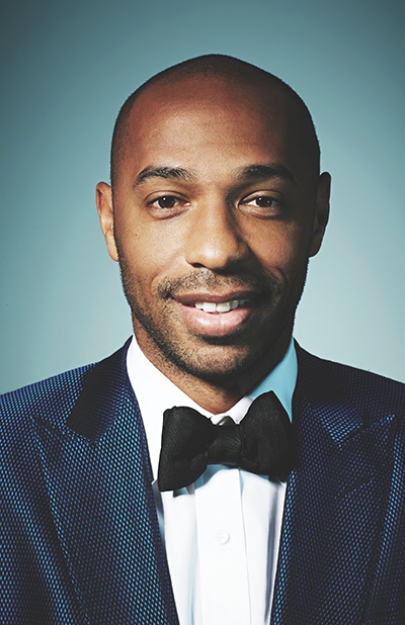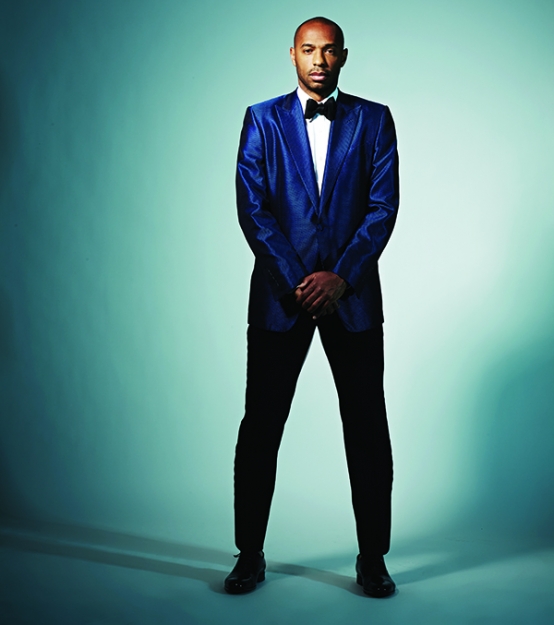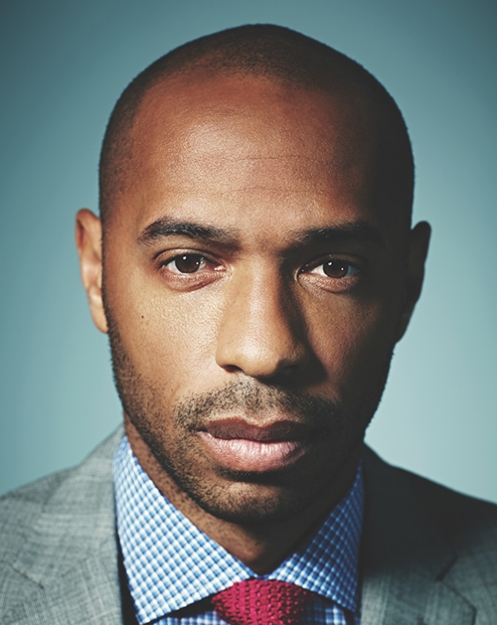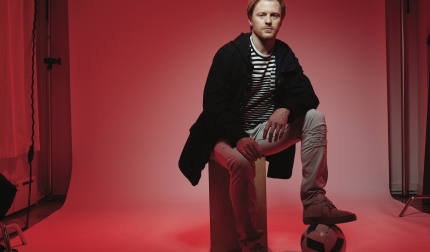To be absolutely clear about this, Thierry Henry was not happy. To be specific, he was mad. Let’s double check this. According to teammates in the locker room at the time, the New York Red Bulls captain was raging crazy.
The story goes something like this. Henry was so unimpressed with how things were going on the field during a Major League Soccer game between his New York Red Bulls and Columbus Crew in July that he let every teammate know exactly how he felt.
We all know if his team was losing this wouldn’t be an unusual scene – anywhere – but to clarify, Henry was mad angry when his team were winning. When Henry launched his blunt evaluation of his own team’s performance, Red Bulls were 2-1 up against Columbus.
“He came in at halftime and was just irate,” New York goalkeeper Luis Robles recalled. “That was vintage Thierry.”
New York eventually won the game 4-1. Imagine Henry if the team tied. Or lost? A World Cup and European Championship winner with France, Champions League winner with Barcelona, Premier League winner with Arsenal, Thierry Henry’s hunger to be the best never let up.
Henry arrived at New York Red Bulls in 2010 and, having turned 37 in August, retired after a glittering career at the end of the past MLS season. He left the league, and soccer in America, in better condition than he when he arrived. Post-Beckham and after Henry, MLS is attracting names who, while past their peak in Europe, are demonstrating the U.S. is no soccer backwater.
New York City FC, a joint venture between the owners of England’s Manchester City and the New York Yankees, enters the league next year and has announced Spain star David Villa and former Chelsea and England midfielder Frank Lampard among new acquisitions. Orlando City, also due to join MLS next year, has named Brazilian icon Kaka as its marquee signing.
Henry has advice to those players and reveals why he still maintains the high standard seen on display that summer afternoon against Columbus.
“People in Europe have the view of MLS that it’s an easy league, that you can come here and score goals and it’s going to be easy,” Henry says.
“I keep on telling them, it’s not that easy. You have to perform, you have to show people here that you can play and they’ll give you your respect, but not before that.”
Not everyone is buying in, however. Former England international Ashley Cole summed up an alternative view of MLS when explaining his free agent options after quitting Chelsea for Italian team Roma this year.
“I had offers from the USA but I'm not ready to relax on a beach yet," Cole, considered a veteran at 33 years old, told reporters when he arrived in Rome to join his new team.
Comparing the standard of MLS to Europe’s elite, however, maybe misses the point. According to Chris Klein, Los Angeles Galaxy president and a former Galaxy player, MLS can be strong and successful in its own right even if its teams cannot rival Europe’s giants on the field.
“When our league was founded, we wanted to appease everyone and get everyone to understand," says Klein. "I am quite confident that, if we continue to do it the right way, we have enough soccer fans in this country to make it wildly successful. We don't need to be the NFL, MLB or NBA. It doesn't matter. Our country is big enough. We just need to be ourselves.”
Soccer’s good health has a couple of other symptoms to report. MLS claims steady growth and by 2020 the league plans to expand to 24 teams with markets in Miami, Atlanta, Las Vegas, San Diego, San Antonio, Austin, and Minneapolis on a wish list.
World Cup TV audiences on ESPN and, importantly, Spanish language network Univision broke viewing and revenue records and NBC’s investment in broadcast rights for England’s Premier League show that soccer – as a whole – has several different products and platforms with which to entice fans.
In July, almost 87,000 fans paid good money to see Los Angeles Galaxy host Manchester United in an exhibition match at the Rose Bowl in Pasadena. By ‘exhibition’, let’s be clear—Manchester United’s team was a mix of unknown hopeful youngsters and new players who had barely met each other (United still beat Galaxy 7-0).
But there could be another game changer for soccer in the U.S. and it’s a sometimes dirty word—politics. FIFA, soccer’s maligned but still powerful world governing body holds an election in 2015 to elect its president.
The sole candidate challenging incumbent Sepp Blatter is a former French diplomat named Jerome Champagne. Champagne told AQ that, if elected, he plans to create task forces to superboost soccer in what he terms ‘frontier states’ - India, Indonesia, China, and – drum roll - the U.S.
The ‘frontier states’, Champagne explained, are countries with huge populations where soccer is popular but not fully realized. Crucially, and here’s the hook, they are often overlooked by FIFA’s Eurocentric executives and committees.
The United States, Champagne suggested, should bid for the World Cup (it was a contender for 2022 before losing to Qatar in a ballot) as well as other FIFA tournaments like the Under-17 and Under-20 World Cups and the Club World Cup, previously held in Japan and the Middle East.
“Look at what happened in the US when the World Cup was organized there for 1994,” Champagne said. “MLS did not even exist then. So imagine what it can do today.”
Regardless of his potential political success, Champagne’s argument is compelling. Add a proactive United States Soccer Federation, a nudge from FIFA, and a World Cup hosted by the U.S.—the next available is 2026—to what exists today and soccer’s bandwagon becomes an unstoppable train.
“For a sport to grow, it has to have a history,” Henry said in an interview soon after arriving in New York City. Sometimes, as Henry’s own amazing career has shown, that history writes itself.







